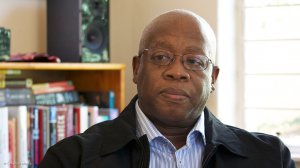The United Party was the ruling party of South Africa from 1934 to 1948, when the National Party came to power. The National Party was in power for 46 years – until it was dislodged by the African National Congress (ANC) in 1994.
In short, single-party dominance has been with us for 66 years and its longest period was during the dark days of apartheid.
The possibility, therefore, is that, on the part of some voters, the desire to see the ANC removed from power is less about the impera- tive of a competitive party system but much more about the fact that the wrong party is in power. This is a very important, but seldom acknowledged, component of our identity politics. This lack of acknowledgement is partly the reason why the black voter, and not his or her white counterpart, is blamed for the coin- cidence between race and voting patterns.
In other words, reconciliation will happen, and our democratic politics will become competitive, the day the majority of black voters switch their allegiance to the Democratic Alliance (DA). White voters, for their part, must just stay where they are. Put differently, the day will come when the majority of black voters abandon the ANC because, like their white compatriots, they shall have decided to vote with their heads and not with their hearts. And so the racist myth goes.
There are so many reasons one can advance to challenge this political myth and its variants but few will suffice. Firstly, political opposition in South Africa does not start and end with the DA. Secondly, white voters have made more than a significant contribution to the coincidence between race and electoral outcomes. Thirdly, the two parties that benefit the most from this coincidence are the DA and the ANC, but this will not always be the case. Fourthly, the idea that ours will become a competitive party system the day the majority of black people vote DA is mere propaganda. Fifthly, if (and this is a big if) the DA, on its own, ever becomes the ruling party, it is not true that it will bring back apartheid.
My arguments notwithstanding, many will, even during this year’s election campaign, continue to parrot the fiction that our political system will become more competitive if black voters switch to the DA. Unfortunately, this fiction has become one of the main pillars of opposition politics.
Further, it is one of the reasons for the poverty of opposition politics and some of the strategic errors of the DA. The most important of these strategic errors is informed by the belief that the individual who will deliver electoral success to the DA is the one who will go to the electoral ball wearing a black mask. It is for this reason that the DA has not given up on the idea of parachuting a ‘credible’ black leader to save South Africa from being domi- nated by the wrong party. Also, it is for this reason that the Agang-DA marriage was annulled before it was consummated.
Unfortunately, the failed elopement of Agang leader Mamphela Ramphele has damaged not only the DA but the opposition cause, in general. The fiasco adds to the damage that was caused by the implosion of the Congress of the (few) People. I sometimes wonder if some opposition party leaders are not on the payroll of Luthuli House. With each election comes an opposition leader who seems desperate to make the electorate forget the failures and weaknesses of the ANC. As they say in the townships, maar why?
The answer is simple. The DA has flirted with models of realignment which, so far, have delivered meagre returns. At first, the idea was to achieve the realignment of opposition politics through amalgamation. When this failed, DA leader Helen Zille started talking about the need to construct a new majority consisting of like-minded people inside and outside the ANC.
The good thing for Zille is that such a group of South Africans does exist. The bad news for the DA is that, while they are gatvol with the ANC, they are like-minded in not seeing the DA as a viable option. To some extent, therefore, the ANC, despite its many failures, will win the election, maybe with a reduced majority, simply because it is not the DA. What Zille and those who see her as the Great White Hope must not ignore is the possibility that a new majority may indeed emerge in South African politics comprising like-minded people inside and outside the DA.
If I am correct, a new majority will emerge in our country, but it will consist of like- minded people inside and outside the DA and the ANC.
EMAIL THIS ARTICLE SAVE THIS ARTICLE
To subscribe email subscriptions@creamermedia.co.za or click here
To advertise email advertising@creamermedia.co.za or click here










